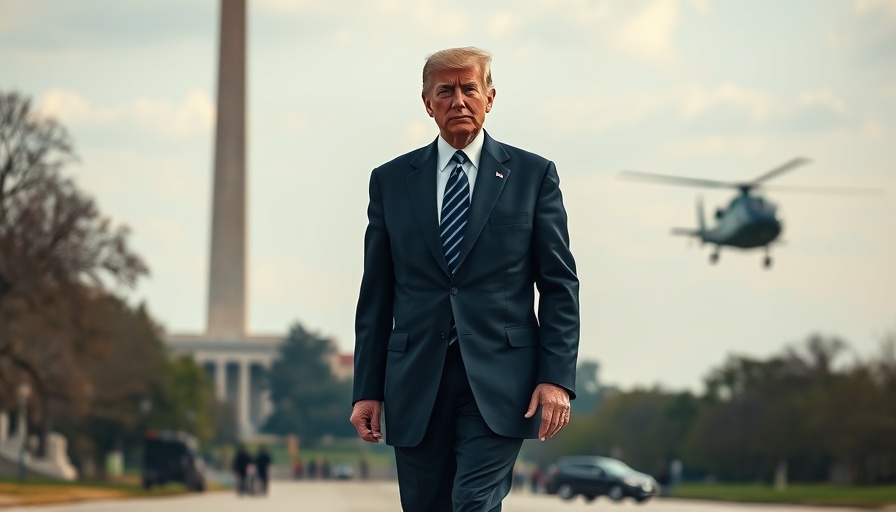
Trump's Decision to Deploy National Guard: A Bold Move for Memphis
In a significant announcement, President Donald Trump has declared plans to send the National Guard to Memphis, Tennessee, to address issues surrounding crime in the city. This decision comes one month after Trump took similar actions in Washington, D.C., where he federalized law enforcement to combat crime effectively. While the president has considered deploying the National Guard to various cities, including Chicago, Memphis has become the focal point of his current strategy.
In a recent interview on Fox News, Trump described Memphis as 'deeply troubled' and expressed confidence in the positive reception from local authorities, stating that both Republican Governor Bill Lee and Democratic Mayor Paul Young were supportive of the action. This bipartisan backing appears crucial for the perceived necessity of federal intervention in urban crime control.
Interestingly, the White House has positioned this deployment as a response to what it terms 'failed Democrat governance' in major cities, illustrating the ongoing political tensions in the U.S. However, Memphis has reported a significant drop in crime, with statistics showcasing a 25-year low in overall crime rates, particularly in homicides which have reached a six-year low. This contradicts the narrative that portrays Memphis as an urgent hotspot requiring federal intervention.
Understanding the Implications of Federal Intervention in Local Crime
Taxpayers naturally have a vested interest in how such decisions impact their communities and finances. Allocating federal resources to control crime raises questions about funding, effectiveness, and long-term consequences. For those concerned with tax implications, understanding how federal spending plays out in local initiatives is essential. Questions around accountability and budget allocation become pertinent when analyzing the potential recurrent costs of deploying resources like the National Guard.
Crime in Memphis: Facts vs. Political Narrative
The conflicting narratives surrounding crime rates and safety in Memphis highlight the need for clarity and more transparent communication from political leaders. For residents and taxpayers, awareness about the real conditions in their neighborhoods is crucial for informed decision-making. Awareness can help taxpayers ask the right questions: Where are our tax dollars going? Will federal intervention lead to lasting improvements or is it merely a political maneuver?
Legacy of Crime Intervention: Can It Reshape Future Policies?
As Memphis prepares to welcome the National Guard, taxpayers must consider the implications of this decision. Will it effectively reduce crime and improve safety, or will it set a precedent for ongoing federal involvement in local matters? Moreover, these developments could shape future policies regarding local law enforcement strategies, federal assistance, and community trust. Understanding these dynamics is crucial for taxpayers who may ultimately foot the bill for these federal actions.
In summary, the deployment of the National Guard in Memphis is not just a response to rising crime; it also represents broader questions of governance, strategy, and taxpayer impact. Observing how this situation evolves will be essential for taxpayers, local residents, and policymakers alike as it could inform future decisions and town hall discussions.
 Add Row
Add Row  Add
Add 




Write A Comment